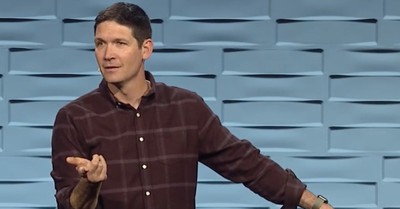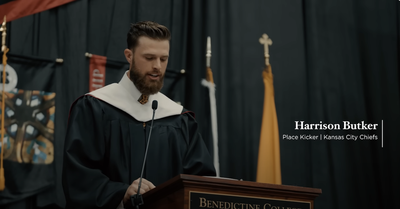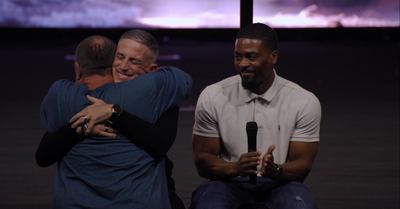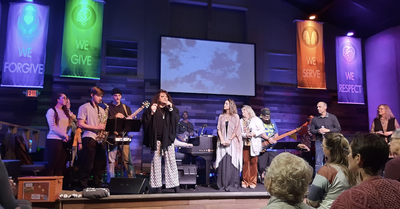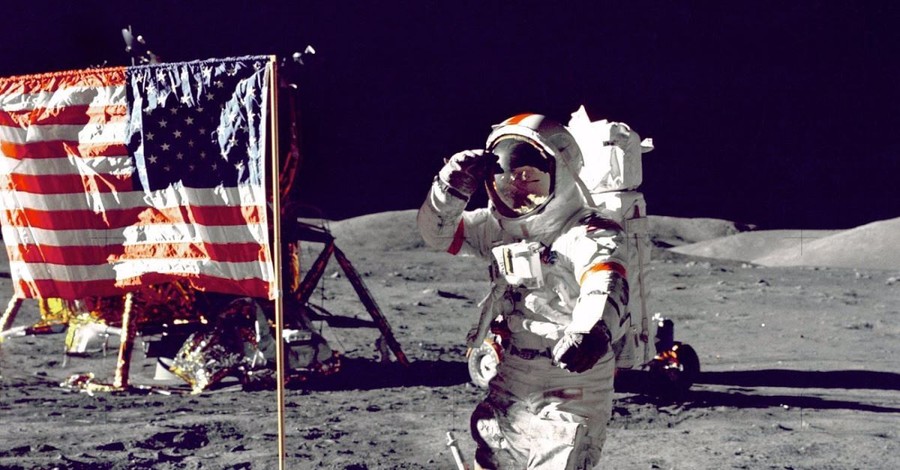

“Tranquility Base here, the Eagle has landed!” With these words spoken fifty years ago tomorrow, astronaut Neil Armstrong announced to our world that he and Buzz Aldrin had become the first humans to land on another world.
Historian Arthur Schlesinger Jr. identified the moon landing as the most significant event of the twentieth century. More than 530 million people watched the broadcast of the moon landing on television. It is estimated that 93 percent of all the televisions in the US were tuned into the event.
But few of those watching had any idea how dangerous the mission truly was.
A flying prodigy and courageous pilot
Yesterday we focused on Michael Collins, the astronaut who stayed aboard the command module while Neil Armstrong and Buzz Aldrin walked on the moon. Monday, we’ll consider Buzz Aldrin’s story and the legacy of his faith.
Today, in preparation for tomorrow’s anniversary, let’s focus on Neil Armstrong, the astronaut who commanded the mission and was the first person to walk on the moon.
Like the other two Apollo 11 astronauts, Armstrong was born in 1930. A flying prodigy, he earned his student flight certificate before he had a driver’s license.
He began studying aeronautical engineering at Purdue University at the age of seventeen and joined the Navy two years later. He flew seventy-eight combat missions during the Korean War, service for which he was highly decorated. He then returned to Purdue to complete his degree.
Armstrong did not know how important his courage would be to the success of the mission we are celebrating today.
How Neil Armstrong saved the moon landing
So much could have gone wrong with Apollo 11.
The spaceship’s heat shield was applied by hand with a sophisticated caulking gun; the parachutes were sewn by hand and then folded by hand. (The only three people licensed to fold and pack the Apollo parachutes were considered so indispensable that they were not allowed for precautionary reasons to ever ride in the same car.)
The technology that enabled Apollo 11 to travel to the moon and back was remarkably effective and sophisticated for its day, but its computational capacity pales in comparison with the smartphone in your pocket.
Then there was the flight itself.
As Eagle neared its landing site on the moon, Armstrong realized that the onboard computer would land the module in a boulder-strewn area, so he took control of the vehicle. He found a clear patch of ground and maneuvered the spacecraft towards it. However, as he approached the area, he saw that it had a crater in it.
Armstrong found another patch of level ground. By this time, Eagle had only ninety seconds of propellant remaining. Lunar dust kicked up by the module’s engine impaired his ability to determine the spacecraft’s motion, so he navigated by large rocks jutting out of the dust cloud.
Finally, at 3:17 p.m. EST, Eagle landed on the moon.
“What America will dare, America will do.”
The narrowly averted landing crisis was not the only challenge Apollo 11 faced. Mission Control in Houston repeatedly lost radio communication with Eagle on its approach to the moon. An intermittent alarm code nearly caused the landing to be aborted.
After Eagle landed, a plug of ice blocked a fuel line, leading flight controllers to consider aborting the moonwalk (heat from the module’s engine then melted the ice). As Armstrong descended from Eagle to the moon’s surface, his spacesuit broke an arming switch which he repaired with a ballpoint pen.
If Armstrong or Aldrin had fallen during their moonwalk, a tear in their spacesuit would have caused the suit to deflate instantly. The astronaut would then die, on television, in front of the world.
Fifty years later, it’s easy to overlook how incredibly dangerous Apollo 11 was. Astronaut Michael Collins, who stayed in the command module while Armstrong and Aldrin walked on the moon, privately estimated the trio’s chance of surviving the mission to be fifty-fifty.
But as Flight Director Gene Kranz later said, “What America will dare, America will do.”
“The challenge facing all of us”
It takes courage to change the world.
In whatever way God is calling you to be a culture-changing Christian, know that the culture will likely resist. Those who hate our Father will hate his children. Jesus warned us: “If they persecuted me, they will also persecute you” (John 15:20).
David exhorted us, “Wait for the LORD; be strong, and let your heart take courage; wait for the LORD!” (Psalm 27:14). “Wait” translates a Hebrew word meaning to “hope in” or “look to with eager expectation.”
Here’s the key to the courage of God: seeking the presence of God.
If we give our challenges to God and expect him to meet our needs, we can “be strong.” Then our “heart” will “take courage”—the Hebrew promises that courage will be granted to us.
Chuck Colson: “Christians who understand biblical truth and have the courage to live it out can indeed redeem a culture, or even create one. This is the challenge facing all of us in the new millennium.”
How courageous will you be for Christ today?
For more from the Denison Forum, please visit www.denisonforum.org.
The Daily Article Podcast is Here!
Publication Date: July 19, 2019
Photo Courtesy: Nasa/Unsplash



